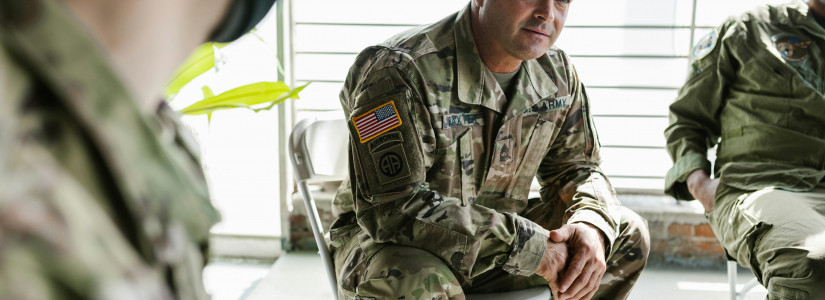Grant Funds Help Fill Knowledge Gaps in Coronavirus Research
Coronavirus funding has been hit or miss with funds available whenever an animal virus that infects humans flares up. Funds are not available and researchers totally lose interest when the public health crisis abates. Coronavirus research has never been a career interest in response to SARS, MERS, and COVID-19, and gaps remain in our knowledge of the animal-related bacteria and its transmission from animals to humans and from human to human. The SARS crisis from 2002 to 2003 infected 8,000 people killing 800 people internationally. Coronaviruses are dangerous pathogens to study. Studies of the interaction of animal coronaviruses and the human immune system began in 2010.
President Trump Allocated $8.3 Billion to Fight COVID-19
President Trump intends $3 billion for the development of vaccines against the coronavirus, and $5 billion for those responding to patients infected with the deadly COVID-19 coronavirus. Upon the release of the funds, the Centers for Disease Control made hundreds of thousands of COVID-19 test kits available with 1 million more to ship this week. More than 20 states have declared the coronavirus a state emergency or disaster and will receive federal government assistance to respond to the public health crisis.
Centers for Disease Control Grants
The Centers for Disease Control (CDC) and Prevention offer grant funds for public health research and public health programs that further its mission within the United States and internationally. The CDC offers prevention grants to fund initiatives to stop recipients from smoking tobacco products, promote weight loss, and for training public health personnel. In 2019, the CDC awarded $1.2 million for statewide data collection systems to study patients with sickle cell anemia.
The National Institute of Allergies and Infectious Diseases
The National Institutes of Health National Institute of Allergies and Infectious Diseases (NIAID) is working with researchers in medical schools around the world to find ways to prevent and treat coronavirus infections in humans. NIAID is paying for research to stop the replication of the coronaviruses. Among the antiviral compounds being tested, Remdesivir, Kaletra, Lopinavir, and Ritonavir, are being studied as anti-COVID-19 medications. The NIAID describes coronaviruses as upper-respiratory tract illnesses that are incubated in animals and transmitted internationally in humans. Pigs, camels, bats, and cats have produced viruses that infect humans. Four mild ones are: viruses 229E, OC43, NL63 and HKU1. Severe acute respiratory syndrome (SARS) spawned in 2002 and was gone by 2004. The Middle East respiratory syndrome (MERS) is active in camels, and lastly, COVID-19 originated in December 2019 in Wuhan, China. Coronavirus SARS-CoV-2 underlies the COVID-19 pandemic.
COVID-19 Topics and Tools for Fire Chiefs
Service grants for fire departments through the Federal Emergency Management Agency's (FEMA) Assistance to Firefighters Grants (AFG) help fire departments' respond to the health and safety of their communities. The FEMA grants can be used for research and development or to increase the number of trained public health and safety firefighters and emergency medical personnel available to respond to the COVID-19 coronavirus epidemic. Coronavirus resources for fire departments is the International Fire Chiefs Association page for coronavirus resources compiled from the Centers for Disease Control, the World Health Organization, and the Department of Human Services information for first responders to remain operational during a pandemic.
Canadian 2019 Novel Coronavirus COVID-19 Rapid Research Funds
The Canadian government is offering $6,750,000 in two-year grants of up to $1,000,000 each to Canadian researchers who contribute to the response to COVID-19 and mitigating its spread. The grant funds are for the development of vaccines or for the development of drug therapies to combat the COVID-19 virus. The Canadian grant funds are also for mitigating the transmission of coronaviruses and improving the public health response on national and international levels.
Canada Develops COVID-19 Lab-In-A-Box
Researchers in Toronto received $1 million of $27 million from the International Development Research Centre for coronavirus research. Pharmacy professors at the University of Toronto engineered portable diagnostic hardware that can be transported into remote underdeveloped areas of the world to test for coronaviruses. The Lab-In-A-Box is the size of a standard shipping container and is capable of performing 14,000 COVID-19 tests. The pharmaceutical researchers hope their portable laboratories will slow or arrest the progression and transmission of coronavirus diseases.
China Approves Anti-Viral Drug Favipiravir Against COVID-19
Zhejiang Hisun Pharmaceutical Company, Ltd, with the approval of the Chinese government, can market Favipiravir as an antiviral therapeutic drug effective against COVID-19. Remdesivir has been successfully used to treat Ebola, and it's effective against the COVID-19 virus in China. Reuters reports that China's National Health Commission reports that more than 1,425 COVID-19 patients have been successfully treated and released using their newly developed antiviral drug, Favipiravir.
International attention to the COVID-19 coronavirus has brought the development of vaccines against animal-origin coronaviruses and antiviral drugs to defeat them once humans develop them. In the United States, governors have declared the rapidly spreading COVID-19 virus a state-wide disaster and have urged people with preexisting health conditions to stay home to avoid coming in contract with the deadly upper respiratory viruses. Schools and universities have been urged to teach classes online remotely whenever possible, and air travel in and out of South Korea is banned through May 2020 due to the possible spread of the COVID-19 virus.












